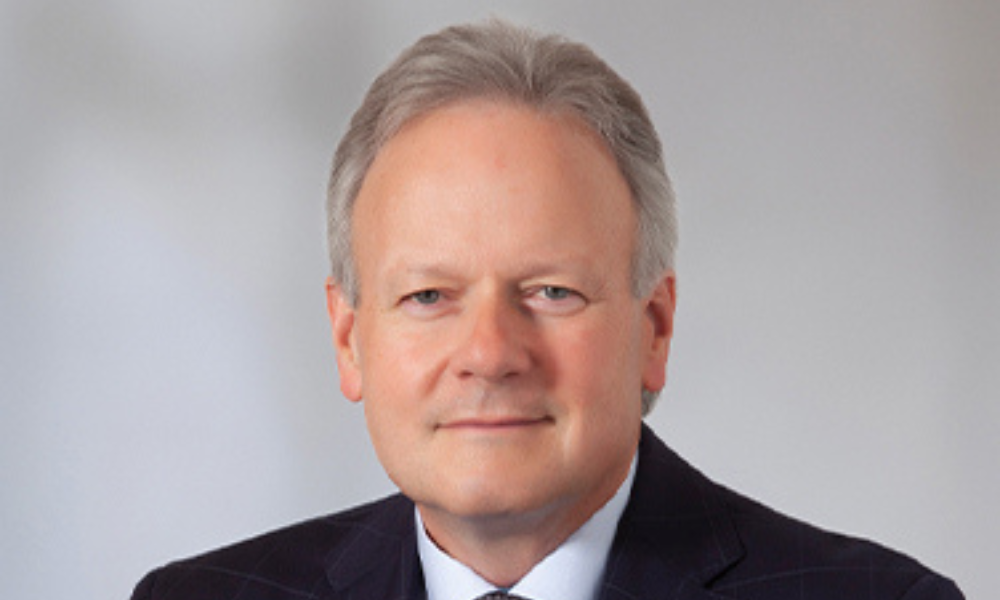Ex-Bank of Canada governor on 'profound moment' when G20 leaders realized seriousness of virus, and why Canada avoided 'disaster of the first order'

When Stephen Poloz attended the G20 meeting in Riyadh, Saudi Arabia, on February 22, 2020, he was prepared, given the traditional alphabetical seating arrangement, for the usual catch-up with his China and Brazil counterparts. Except, the Chinese central banker never showed up, worried no one would want them in the room for fear of being infected with COVID-19.
Instead, the country’s ambassador to Saudi Arabia debriefed the entire group. “You could have heard a pin drop in there,” Poloz told WP. “It was such a profound moment. You could just feel it in your gut that this was really, really serious.” He added: “Bill Morneau [the then finance minister] and I came away thinking, ‘we gotta get ready, because there's no way in this integrated world we're going to avoid this’.”
The defining event of Poloz’s tenure as governor of the Bank of Canada was in view. A little over three weeks later, border restrictions were in place and Ontario, B.C., Alberta and Saskatchewan had declared states of emergency. If there was ever a time for “Sunny Steve” – a moniker given to him by The Economist – this was it.
Read more: Being governor is a 'really rich feeling - there's not much that can compare'
Poloz left his position at the central bank three months later having decided not to run for another seven-year term. But the impact of the policy response during the tailend of his reign continues to be felt and debated. Fiscal stimulus has contributed to inflation, which his successor Tiff Macklem is now charged with getting under control, but Poloz believes some perspective has been lost.
Back in the early days of lockdowns, the media was awash with dire forecasts that the pandemic would send Canada into the worst recession since the Great Depression. Economic adaptability has been one of the biggest lessons of the pandemic and Poloz, true to his upbeat reputation, always believed the economy would prove resilient.
He credits the success of CERB – government debt to GDP ratio peaked at 46%, up only half as much as he feared – the speed with which it was put together and its ability to be as big or small as needed. “It was the most remarkable piece of fiscal policymaking in our history,” he said.
"A firefighter never gets criticized for using too much water. ... Let's put it in context; we avoided the second Great Depression.”
For many people, of course, COVID has been desperate, whether they’ve lost employment or, much worse, a loved one. As a central banker, however, Poloz believes his forecast was proved right. People’s ability to switch to remote work ensured the economy was back to 97-98% of its capacity by September, 2020. The top part of the economy’s “K” graph kept growing, creating new jobs an adding to the resiliency, although it’s also meant industries in the bottom part have struggled to recruit upon reopening.
Inflation, exacerbated by global supply chain issues and the Russian invasion of Ukraine, has created new problems, but Poloz believes those arguing about whether monetary or fiscal policy was overdone are missing the big picture.
He said: “It could have been a disaster of the first order – and there ought to be a lot more credit given for that. A firefighter never gets criticized for using too much water; they get praised for getting a fire out. And when it's over, then they mop up. That’s what's happening. If it turns out too much water was used well, okay, but let's put it in context; we avoided the second Great Depression.”
Read more: Why investors should brace for Bank of Canada's 'heavy lifting'
Inflation, he added, is something we know how to fix, albeit that won’t happen overnight, as has been shown. But Poloz maintains that the “transitory” term was misunderstood by many from the off. Rather than a reference to speed, the technical meaning is that inflation will go away mechanically as we work through year-on-year calculations and supply chain issues stabilize.
Given the doomsday scenario many predicted we were heading for, Poloz maintains this is a relatively small price to pay for what could have happened.
“People are very quick to lose sight of the big picture,” he said. “They take where we are for granted. Forget the counterfactual. Gosh, it's only been two years since economists were screaming that we’re heading for the next Great Depression.”



